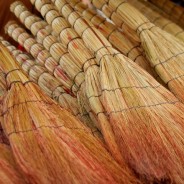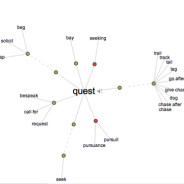The Guest House by Rumi: A Quiet Revolution?
I came across this poem, The Guest House, by Rumi, for the first time, week before last, when I was looking for a clean link for Mary Oliver’s poem, The Journey. Here are the first twelve lines: This being human is a guest house. Every morning a new arrival. A joy, a depression, a meanness, Some momentary awareness comes As an unexpected visitor. Welcome and entertain them all! Even if they’re a crowd of sorrows, Who violently sweep your house Empty of its furniture, Still, treat each guest honorably. He may be clearing you out For some new delight. How wonderful is that? The image of sorrow and all the other emotions—joy yes—but also the difficult ones—anger—shame—fear—all as visitors—some pleasant visitors and some more difficult ones—and all of them guests. And guests with a broom no less. Sweeping through the rooms—clearing it. Rumi’s lines here resonate for me with those lines by Paul Simon from his song, “Sound of Silence”: Hello darkness, my old friend I’ve come to talk with you again. But now I’m picturing Darkness with a broom. Full text of Rumi’s poem Photo by Vladimir Shioshvili at Wikimedia Commons: Brooms for Sale in a Tbilisi...
read more

